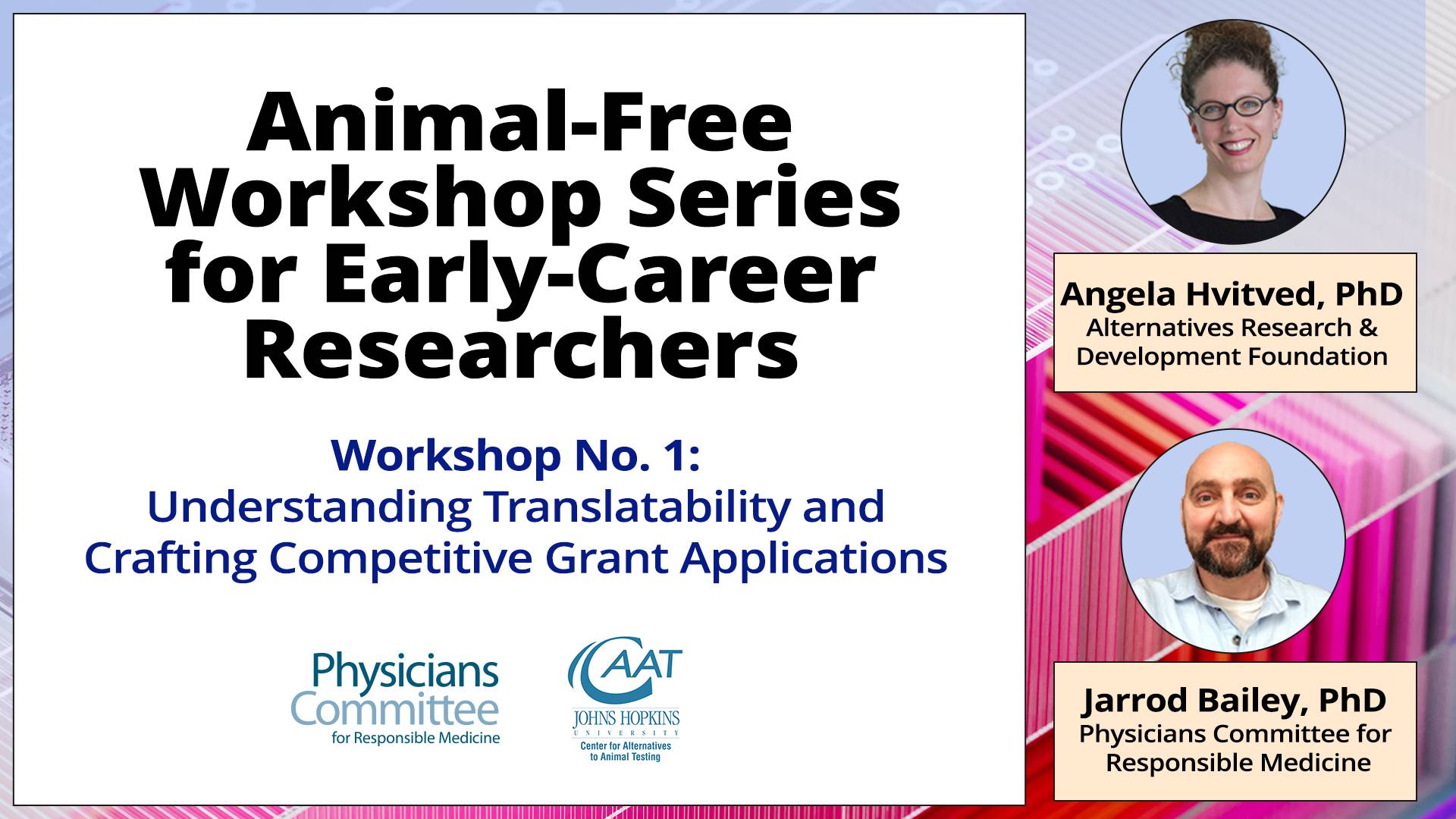Physicians Committee Launches New Workshop Series for Early-Career Researchers Focused on Animal-Free Methods

The Physicians Committee for Responsible Medicine, Johns Hopkins University Center for Alternatives to Animal Testing, and the Animal Protection Commissioner of Berlin hosted the first event of the new Animal-Free Workshop Series for Early Career Researchers. This collaborative effort offers free, online events featuring the latest advances in nonanimal research and career development to a growing cohort of young scientists.
The Animal-Free Workshop Series for Early Career Researchers is the latest initiative from the Physicians Committee’s program aimed at supporting the next generation of scientists using nonanimal methods: Early Career Researchers Advancing 21st Century Science (ERA21). On November 19th, 224 attendees from around the world and across different stages of their careers attended Workshop No. 1: Understanding Translatability and Crafting Competitive Grant Applications.
The first session was led by the Physicians Committee’s own director of medical research, Dr. Jarrod Bailey. He discussed how human-focused research provides greater clinical benefits than animals due to greater biological similarities. During his presentation, Dr. Bailey covered specific areas of research, like neuroscience and pharmaceutical safety assessments, where the use of animals limits the ability to translate research findings into medical interventions for humans. He also highlighted exciting progress in human-specific, nonanimal research approaches, but noted barriers preventing a shift away from animals, such as lack of international regulatory harmonization and low funding levels for nonanimal methods.
The second session was led by Dr. Angela Hvitved, program director at the Alternatives Research & Development Foundation. Dr. Hvitved provided an overview of funding opportunities for nonanimal research methods including where applicants can find these opportunities, like public and private sources and science-driven organizations versus mission-driven organizations. Dr. Hvitved also shared practical tips for crafting a strong proposal that is tailored to the target funding opportunity, like how to demonstrate the value and benefits of nonanimal approaches to reviewers.
During the event, attendees had the opportunity to identify what topics they hope to learn about during these workshops, and among the most common answers were animal-free models and specific human-centered methods, including organoids and organ chips. Other attendees showed interest in career development topics like networking skills and engaging in science policy.
The next workshop will take place in April 2025. In addition to the Workshop Series, ERA21 provides other events like the Summer Immersion on Innovative Approaches in Science, a concentrated, in-person training opportunity taking place biennially. ERA21 also offers travel awards to support the next generation of scientists and enable them to attend and present their animal-free research at conferences. If you’re an early-career researcher interested in animal-free methods, be sure to sign up for the ERA21 Newsletter so you don’t miss future events and opportunities!








